Ultimate UPCAT Reviewer 2024 [FREE PDF Download]
Are you an honor student still unsure of your UPCAT readiness? Or an average student hoping to pass the exam despite your mediocre high school grades? Whatever the case, U.P. provides equal chances to all students. Who cares if you didn’t perform as well as you had hoped in high school? You can still redeem yourself by giving your best shot in UPCAT. And it all starts with having a good, reliable UPCAT reviewer to improve your test-taking skills.
Why UPCAT Reviewer Is Better Than Traditional Review Centers
Aside from hefty enrollment fees, review centers often promise more than they deliver. Students have different weaknesses or subject areas they need to focus more time on. Unfortunately, most review centers are driven by profit, so they’re more concerned about filling as many seats as possible than fulfilling each student’s needs. READ: How to Pass UPCAT Without Review Center: Best Tips from UP Students and Alumni In contrast, studying at your own pace allows you to choose the areas to concentrate on. And the more UPCAT practice tests you take, the better you become at choosing the correct answer no matter how difficult the question is. A lot of UPCAT passers aced the exam without relying on review centers. And if you ask them today, they will all agree that UPCAT pales compared to the college exams waiting for you in U.P. Therefore, develop discipline and self-reliance as early as now by reviewing on your own. There will be no review centers to help you out once you make it to U.P.
How To Use This UPCAT Reviewer
- Mathematics
- Science
- Language Proficiency
- Reading Comprehension
Each section features subtopics that might appear in the actual UPCAT, free practice tests, and answer keys to test your knowledge.
Consider these practice tests as part of the diagnostic exam, which can be used to determine your weakest areas and guide you in creating your study plan.
To help with your review, we’ve created learning aids such as printable study guides/summary notes and flashcards designed to provide students with maximum learning in a minimum amount of time.
Once you’ve completed your initial review, you can take the mock exam for each subtest to measure how prepared you are and spot any weak areas you might have missed.
1. Mathematics
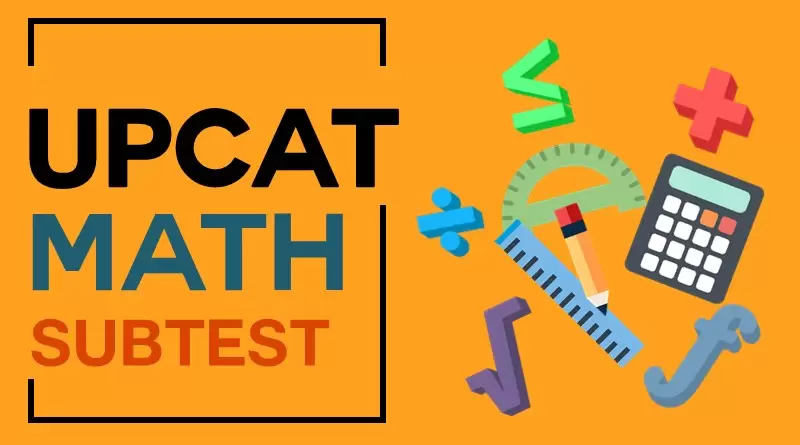
UPCAT Math Modules and Readings + Printable Quizzes
The Mathematics subtest of the UPCAT contains questions from different topics you learned in high school. Although UPCAT questionnaires vary every year, Math questions will most likely come from the following subtopics:
a. Arithmetic and Number Sense
- Real Numbers and Imaginary Numbers
- Operations on Integers
- Order of Operations (PEMDAS)
- Factors and Multiples
- Divisibility Rules
- Fractions and Decimals
- Operations on Fractions and Decimals
- Percent
- Ratio and Proportion
b. Algebra
- Algebraic Expressions
- Laws of Exponents
- Logarithms
- Polynomials
- Special Products and Factoring
- Linear Equations
- Quadratic Equations
- Rational Expressions
- Radical Expressions
- Inequalities
- Functions
- Cartesian Coordinate System
- Sequence and Series
- Using Algebra to Solve Word Problems
c. Geometry
- Introduction to Geometry: Undefined Terms, Definitions, Postulates, and Theorems
- Angles: Classification and Properties
- Triangles: Classification and Theorems
- Conversion of Units of Measurement
- Perimeter and Area of Plane Figures
- Volume of Solid Figures
- Circles
- Right Triangles
d. Trigonometry
- Six Trigonometric Functions
- Unit Circle
e. Statistics
- Measures of Central Tendency
- Probability
- Factorials, Permutations, and Combinations
- Graph Analysis
f. Calculus
g. Logic
- Propositional Logic
- Truth Tables and Logical Equivalences
UPCAT Math Printable Summary/Review Notes ( Available Now! )
UPCAT Math Printable Flashcards ( Available Now! )
UPCAT Math Review Tips and Tricks
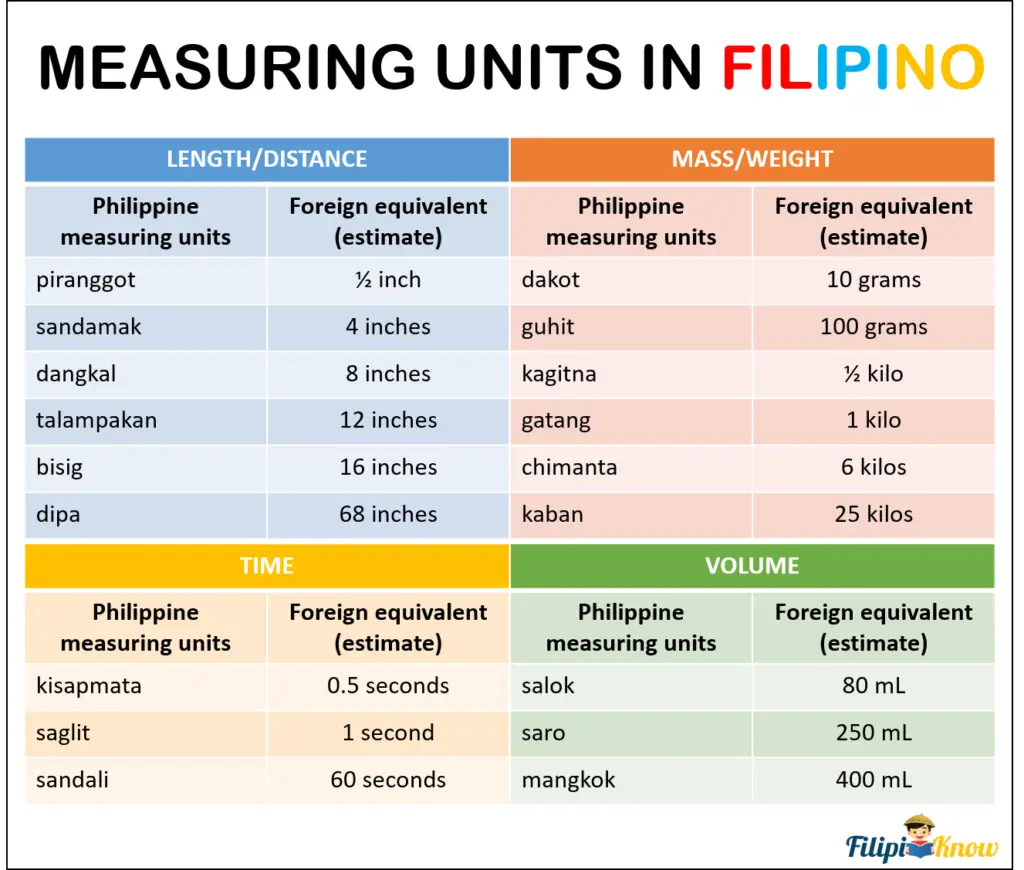
- Focus on the basics. Students with a good grasp of the fundamental math formulas and principles can handle even the most complex math problems. Advanced math topics like calculus are nice to learn but don’t expect them to outnumber Algebra questions in the UPCAT. Past UPCAT takers can attest that Algebra questions typically dominate the Math subtest; items about Geometry, Trigonometry, Statistics, and Pre-/Calculus (in descending order of dominance) are few and far between.
- Trigonometry questions may appear but in only a few items. Review trigonometric ratios and basic applications.
- Since calculators will not be allowed on the exam day, ensure you know how to compute by hand or mental math techniques. Brush up on the multiplication table—practice solving long-division problems. You can also download a PDF copy of Speed Math for Kids if you’re still struggling with basic calculations.
- Supplement your math review with free YouTube tutorials. Channels like PatrickJMT provide clear, easy-to-follow math lessons you might have missed in school.
- Master solving math problems involving fractions. Learn how to do the four basic operations on similar and dissimilar fractions and express your answers in the lowest terms.
- Answer as many practice tests as possible. You may not be able to cover every math topic in your review, but you’ll develop problem-solving skills essential to passing UPCAT. Besides, you can remember math formulas better with repeated testing/application than with rote memorization.
- When reviewing for UPCAT, internalize, don’t memorize. Understand the math behind every formula. If you just learn math formulas, you’ll fall victim to formula blindness. Students fail to solve a problem because they assume the question asks for a specific formula when it requires something else. To prevent this, review how math formulas are derived so you won’t be misled to use a formula in a problem that deceptively asks for another similar formula.
- Familiarize yourself with the Filipino translations of common math terms, shapes, and measuring units (see table below). Questions in Filipino may appear in all subtests, not just in Language Proficiency and Reading Comprehension.
UPCAT Math Practice Tests (FREE PDF Downloads)
- UPCAT Math Practice Test (Set 1): Questions | Answers
- UPCAT Math Practice Test (Set 2):Questions | Answers
- UPCAT Math Practice Test (Set 3): Questions | Answers
UPCAT Math Printable Mock Exam + Answer Key ( Available Now! )
2. Science

UPCAT Science Modules and Readings + Printable Quizzes
The UPCAT will test your stock knowledge of the general scientific concepts related to Physics, Biology, Chemistry, Earth Science, and Astronomy. To ace this subtest, brush up on the following potential topics under each category:
a. Chemistry
- Introduction
- Matter
- Atoms
- The Periodic Table of Elements and Periodic Trends
- Compounds
- Gases
- Chemical Reactions
- Chemical Kinetics
- Chemical Equilibria
- Acids and Bases
- Thermochemistry
- Nuclear Chemistry
- Concentration of Solutions
- Organic Chemistry
- Biochemistry
b. Biology
- Introduction
- Properties of Life
- Biomolecules
- The Cell
- Cellular Metabolism
- The Central Dogma of Biology
- Biological Diversity
- The Theory of Evolution
- Genetics: The Study of Inheritance
- Animals: Form and Functions
- Plants: Form and Functions
- The Principles of Ecology
- Earth’s Vital Statistics and Earth Systems
- The Layers of the Earth and its Composition
- Minerals
- Rocks
- Depositional Environments and Associated Landforms and Waterforms
- Basics of Stratigraphy
- Fossils and the Geologic Time Scale
- Plate Tectonics
- Earthquakes
- Volcanoes
- Climate, Weather, and the Atmosphere
- A Brief History of Astronomy
- The Origin of the Universe and Solar System
- The Solar System and its Planets
- How the Earth Was Formed
- The Motions of the Earth
- The Motions of the Moon
- Other Celestial Bodies in Space
d. Physics
- Introduction
- Scalar and Vector Quantities
- Kinematics
- Relative Velocities
- Laws of Motion
- Friction
- Work, Energy, and Power
- Momentum and Impulse
- Fluid Mechanics
- Waves and Optics
- Electricity and Magnetism
- Thermodynamics
- Nuclear Physics
- Introduction to Relativity
UPCAT Science Review Tips and Tricks
- Download or create flashcards to help you remember key terms, concepts, and formulas.
- As with the math subtest, don’t rely on memorization when studying scientific formulas. Understand them by heart and practice applying them to test questions with real-life scenarios.
- Challenge yourself by answering difficult questions containing graphs and data from scientific research. These often appear in the actual UPCAT.
- There are relatively fewer questions from Physics than from other scientific subjects, but this may vary from year to year. Use critical thinking skills to analyze situations and find the best answers.
- While the Science subtest usually has an even distribution of questions for all subjects, recent UPCAT takers claim they encountered more Earth Science-related questions. However, UPCAT questions differ yearly, so instead of letting current trends influence how you review for the exam, take them with a grain of salt and allot an equal amount of review time to each Science subject.
- Don’t develop the habit of simply memorizing Science concepts. Most of the UPCAT questions in this subtest are application-based, meaning they will test your comprehension of ideas/concepts when applied in real-world situations, something you won’t develop if you only rely on popular reviewers (e.g., Tome of Knowledge) containing shortcuts/summaries with no context whatsoever.
- Each time you study a concept, try to discuss it in your own words in writing or through storytelling. This way, you will remember them better.
UPCAT Science Practice Tests (FREE PDF Downloads)
- UPCAT Science Practice Test (Set 1): Questions | Answers
- UPCAT Science Practice Test (Set 2):Questions | Answers
- UPCAT Science Practice Test (Set 3): Questions | Answers
3. Language Proficiency
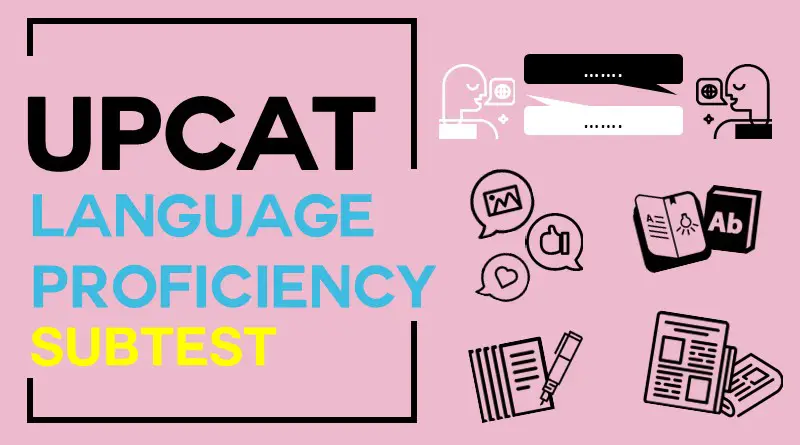
UPCAT Language Proficiency Modules and Readings + Printable Quizzes
The UPCAT Language subtest is comprised of questions in both English and Filipino. It will measure your fluency in both languages. Although we can’t predict what type of questions will appear in the actual exam, they most likely will come from the following topics:
English
a. Vocabulary
- Word Meanings
- Spelling
- Synonyms
- Antonyms
- Homonyms
- Confusing Words
b. Grammar and Composition
- Parts of Speech
- Correct Usage
- Punctuation
- Capitalization
- Figures of Speech
- Subject-verb Agreement
- Sentence Construction
- Modifiers
- Active and Passive Voices
- Essay Writing
Filipino
Note: Test questions in Filipino are incorporated in both Language Proficiency and Reading Comprehension subtests).
a. Wastong Gamit
b. Bahagi ng Pananalita
c. Sawikain o Idioma
d. Tayutay
e. Paksa ng Talata
UPCAT Language Proficiency Tips and Tricks
- Read professionally written and edited pieces from books, journals, major broadsheets, or magazines. These reading materials are fueled by good writing, so immersing in them can sharpen your vocabulary and grammar skills, not to mention help you read faster, which is valuable in acing the Reading Comprehension subtest.
- In contrast, poorly written blogs, tabloids, and similar reading materials may skew your perception of what constitutes good writing. Avoid them like the plague.
- Don’t use shortcuts when writing a message through text, e-mail, or messaging apps. People who are used to misspelling words to save time tend to dull their abilities to use proper spelling and grammar.
- Enrich your vocabulary by learning at least one new English word a day. You can discover new words by reading books or watching TV shows/movies. We also suggest downloading the PDF version of “The 1000 Most Common SAT Words,” which features a rich collection of uncommon English words, some of which have appeared in the actual UPCAT questions.
- Use a dictionary to find the definition of unfamiliar words. Rather than relying on memorization, try using these new words in your daily writing activities or conversations for better retention.
- Refrain from watching Tagalized movies and TV shows for now. If you want to improve your English proficiency, the best options would be informative American TV shows that use formal English, like those on Discovery, History Channel, and National Geographic, to name a few.
- Learn how to find the meaning of a word using context clues. This way, you can guess the answer without a dictionary or thesaurus. For example, in the sentence “She was an assiduous student who promptly submitted her homework and projects on time,” you can infer that assiduous most likely means “studious” by merely looking at the context clues following it like “promptly” and “on time.”
- Play games like Scrabble or Word Factory that can help expand your vocabulary and improve your logical thinking.
- Know how to guess the meaning of words by looking at their root words, prefixes, or suffixes. For instance, “Philos” is a Greek root word that means “love,” so English words that originated from it, like philanthropy, philosophy, and hydrophilic, all have positive connotations.
- For the Filipino part, you can improve your vocabulary by reading the literary works of Ricky Lee, Lualhati Bautista, and Jose Rizal. Questions in Filipino may also be included in the Science and Math subtests, so familiarize yourself with Filipino translations of shapes, scientific terms, and the like.
- Practice communicating in both languages. Whether speaking or writing, the only way to improve your communication skills is through a consistent application. Start your blog/vlog. Volunteer to edit articles on the Internet. Do whatever it takes to improve your language proficiency. It’s one skill that will help you succeed not just in U.P. but in the real world.
UPCAT Language Proficiency Practice Tests (FREE PDF Downloads)
- UPCAT Language Proficiency Practice Test (Set 1): Questions | Answers
- UPCAT Language Proficiency Practice Test (Set 2):Questions | Answers
- UPCAT Language Proficiency Practice Test (Set 3): Questions | Answers
- UPCAT Language Proficiency Practice Test (Set 4): Questions | Answers
4. Reading Comprehension
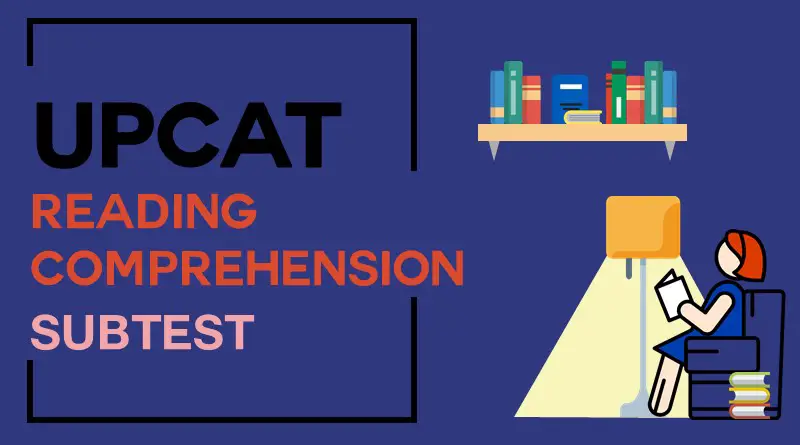
UPCAT Reading Comprehension Modules and Readings + Printable Quizzes
The UPCAT Reading Comprehension subtest is all about speed reading and quick thinking. Expect to encounter long essays that can easily consume a lot of your time if you’re not careful.
This subtest includes questions in both languages (English and Filipino) and may contain the following question types/formats:
- Essays
- Getting the Main Idea/Topic Sentence
- Appropriate Title of Selection
- Poetry
- Short stories
- Speeches
- Comic Strips
- Figures of Speech (simile, metaphors, etc.)
- Author’s Point of View
- Meaning Through Context Clues
- Drawing Conclusions
- Inference
- Fact and Opinion
- Literary and Textual Criticism
UPCAT Reading Comprehension Tips and Tricks
- Unless you’re a gifted speed reader, it’s impossible to read all the passages/stories within the allocated time of roughly 30 to 40 minutes. So instead of reading them from start to finish, go straight to the question and use the clues you can find to zero in on the answers embedded in the stories/passages.
- Learn how to read fast while maintaining 100% comprehension. Practice with both English and Filipino reading materials. Master the art of skimming and scanning to understand important information without reading the entire blocks of text.
- As you can see from the “Coverage” section above, the Reading Comprehension subtest may include questions that will ask you to analyze a wide variety of reading pieces ranging from essays, lines in plays, and poems to articles containing graphs and charts similar to those appearing in the Science subtest.
UPCAT Reading Comprehension Practice Tests (FREE PDF Downloads)
- UPCAT Reading Comprehension Practice Test (Set 1): Questions | Answers
- UPCAT Reading Comprehension Practice Test (Set 2):Questions | Answers
- UPCAT Reading Comprehension Practice Test (Set 3): Questions | Answers
- UPCAT Reading Comprehension Practice Test (Set 4): Questions | Answers
UPCAT 101: An Ultimate Guide to the University of the Philippines College Admission Test

1. How to Apply for UPCAT: An Ultimate Guide
Ready to take on the challenge of preparing for UPCAT? Learn basic facts about this challenging entrance exam, including who is qualified to take it, the requirements, the application process, and other frequently asked questions about UPCAT.
2. How to Choose a Course in UP: A Guide to Quota and Non-Quota Courses
Learn the truths and myths behind quota and non-quota courses in UP and tips on picking the right course.
3. How to Review for UPCAT: A Definitive Guide to UPCAT Coverage
To help you gain the upper hand in UPCAT, we’ve compiled the UPCAT coverage based on the experiences of recent UPCAT takers.
4. How to Get Into UP Even with Low or Average High School Grades
The UPCAT is designed to give a fair chance to all students from all walks of life to pass and study at UP. If you’re one of those high school students who don’t think you have a good chance of passing the UPCAT, read on to find out how to get a fighting chance.
5. How to Take the UPCAT: Tips to Remember to Make it Through the Examination Day
To help you prepare for the Big Day, we’ve compiled the best tips from past UPCAT takers on what to do before, during, and after the UPCAT.
6. How to Enter UP Without Taking the UPCAT
UPCAT is not the only way you can get into UP. Sounds interesting? Here are the different ways to get into UP without taking the UPCAT.
7. How to Study at UP Without Passing the UPCAT
Did you fail the UPCAT but are still determined to study at UP? All hope is not lost. Check out the different ways you can still gain an admission slot.
8. How to Check UPCAT Results: A Step-by-Step Guide
Your UPCAT journey is about to conclude. In this article, you’ll learn when, how, and where the UPCAT results will be posted.
9. How to Compute UPG in UPCAT: A Complete Guide
Do you want to know your chances of entering UP? Read on to learn more about your application’s deciding factor, the UPG.
10. How to File an Appeal for Reconsideration of UPCAT Result
Find out how you can file an appeal for reconsideration of your UPCAT result and how to get into your dream course/campus if your reconsideration gets rejected.
Frequently Asked Questions About the UPCAT

1. What is the UPCAT?
The University of the Philippines College Admission Test (UPCAT) is the primary qualifying exam to gain admission into the University of the Philippines.
2. Why should I take the UPCAT?
Besides being one of the top-ranked universities in the Philippines, UP boasts quality education, state-of-the-art facilities, and free tuition and other school fees.
3. How many UPCAT takers are there per year?
From 2018 to 2020, there has been an average of 100,000 UPCAT applicants yearly. UPCAT takers have increased throughout the years because of the Universal Access to Quality Tertiary Education Act 2017, which waived all tuition fees for state university and college students.
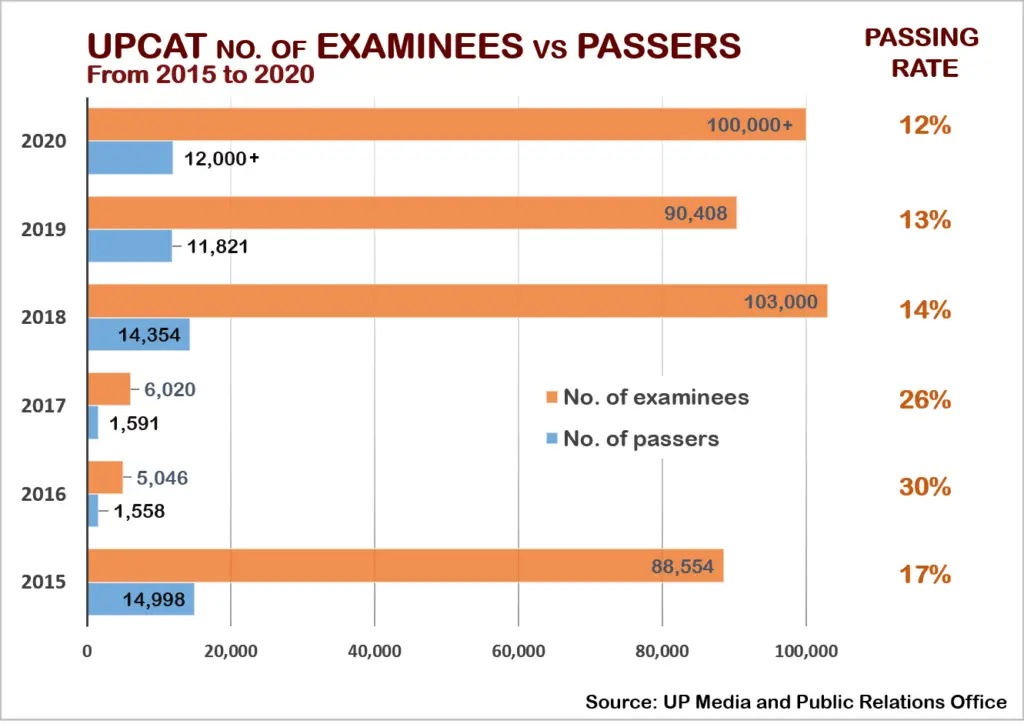
Meanwhile, the low number of UPCAT examinees in the years 2017-2016 was due to the implementation of the K 12 curriculum.
4. When will the UPCAT take place?
The UPCAT application process usually starts around July or August. The UPCAT exam is administered around September or October of the same year. Finally, the results typically come out around March or April.
5. What is the passing rate for the UPCAT?
Referring to the graph above, if we remove the data from 2017-2016, the average passing rate for the UPCAT is 14-15%.
6. Is the UPCAT hard?
While it is a comprehensive exam, many UPCAT takers say it is not excessively difficult. The low passing rate can be attributed to the many applicants vying for limited slots within the university.
7. Should I enroll in a review center to pass the UPCAT?
No. A review center will be helpful, but not necessary to pass the UPCAT. Enrolling in a review center will also not guarantee passing the UPCAT. Check out this article to learn more about passing the UPCAT without attending a review center.
8. What happens if I fail the UPCAT?
Failing the UPCAT means you cannot gain an admission slot in UP. If you failed the UPCAT but still want to study at UP, check out this article.
9. Is UPCAT right minus wrong?
Yes. You will be deducted 0.25 from your total score for every wrong answer you incur.
10. Should I leave blank spaces if I don’t know the answer during the UPCAT?
As much as possible, no. Even though the UPCAT has the right minus wrong scheme, it is still advisable that you make educated guesses when possible. If you 100% don’t know the answer to an item, then that’s the time you leave it blank. Related: How to Answer Multiple-Choice Questions Like a Pro
11. Are we allowed to use calculators in the UPCAT?
No, but you will be given scratch papers for computation.
12. Is there an essay portion in the UPCAT?
Sometimes. There have been UPCATs with an essay portion, while some did not. To be prepared, assume that there will be an essay portion.
13. Can an average or struggling student pass the UPCAT?
Yes. The UPCAT is designed to give a fair chance for all deserving students to study at UP. Check out this article to learn how to make it to UP with low or average grades.
14. Can I retake the UPCAT if I fail the first time?
No. You can only take it once.
Leave Us a Comment or Review!
This reviewer is a work in progress. We aim to provide the best online UPCAT reviewer for self-directed learners. And no one can offer better feedback than those who have personally used this reviewer like you.
Copyright Notice
All materials contained on this site are protected by the Republic of the Philippines copyright law and may not be reproduced, distributed, transmitted, displayed, published, or broadcast without the prior written permission of filipiknow.net or in the case of third party materials, the owner of that content. You may not alter or remove any trademark, copyright, or other notice from copies of the content. Be warned that we have already reported and helped terminate several websites and YouTube channels for blatantly stealing our content. If you wish to use filipiknow.net content for commercial purposes, such as for content syndication, etc., please contact us at legal(at)filipiknow(dot)net
FILIPIKNOW® is a registered trademark of the owner of Pacific Pact with Registration No. 4/2019/00504365. All content is copyrighted.









